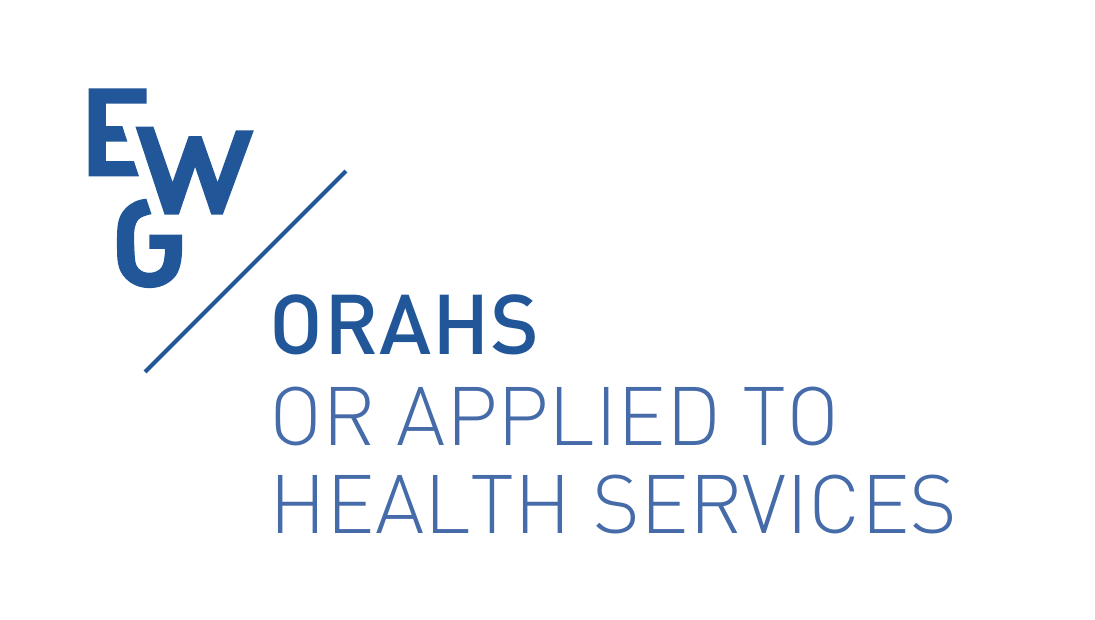Steve Gallivan Award
The Steve Gallivan Award was proposed and decided during the business meeting at the ORAHS 2016 in Pamplona. From the ORAHS 2017, we are awarding the best presentation for "most effective collaboration by an early career operational researcher with health and care professionals". The winners and the runners up from 2017 are as follows (abstracts are available in the corresponding conference proceedings in the repository):
- 2024: Aleyna Gursoy – University of Bergamo: A Scheduling Tool for the Production of Blood Components
- 2nd runner up: Sara Cambiaghi – Università di Pavia: A stochastic optimization approach for scheduling CT scans and reports
- 3rd runner up: Arianna Freda – Università degli Studi Roma Tre: Simulation-based optimization for solid organ transplantation management
- 2023: Martina Doneda – Polytechnic of Milano: A decision-making tool for the location, districting and dimensioning of Community Houses in Lombardy, Italy
- 2nd runner up: Florentina Hager – CHOIR, University of Twente: Optimising Patient Transport and Medical Resource Allocation in Mass-Casualty Incidents
- 3rd runner up: Matthew Howells – School of Mathematics, Cardiff University: Orthopaedic Care Pathway Modelling Using Hybrid Simulation
- 2022: Robin Buter – University of Twente: Spatial risk analysis of out-of-hospital cardiac arrests
- 2nd runner up: Joseph Farrington – University College of London: Deep reinforcement learning for platelet inventory management
- 3rd runner up: Julia Resch – University of Graz: A semi-online ambulance routing and scheduling problem with complex patient-vehicle relations
- 2021 (ex aequo):
Kurnia Susvitasari – Simon Fraser University: Determining the Required Number of Hospital Beds to Meet Access Targets
for Emergency Department Admissions Using Simulation Optimization
Le Khanh Ngan Nguyen – Strathclyde University: Application of hybrid simulation in the fight against Covid-19 - Runner up: Mansour Zarrin – University of Augsburg: Homogeneity and Best Practice Analyses in Hospital Performance Management: An Analytical Framework
- 2020: Erin Roman – Vlerick Business School: Variability in hospital treatment costs: A time-driven activity-based costing approach for early stage invasive breast cancer patients
- 2019: Emily Williams – Cardiff University: Scheduling Blood Donation Clinics to Match Supply and Demand
- 2nd runner up: Mariana Oliveira – Universidade de Lisboa: Reallocating operating room capacity: a Portuguese case study
- 3rd runner up: Steffen Rickers – Leibniz Universitat Hannover: Integrated procurement and reprocessing planning of perishable and reusable medical devices in hospitals
- 2018 (ex aequo):
Mary Conlon – NUIG Galway: Profiling the patient, from a radiology perspective, for agent based simulation
Joren Marynissen – KU Leuven Leuven: Multi-appointment scheduling in a diagnostic facility - 2017: Sebastian Rachuba – University of Exeter: What is the required size of a Clinical Decision Unit for an Emergency Department? Insights from a knowledge transfer project
- Runner up: Rudabeh Meskarian – University of Southampton: An agent based simulation of Hepatitis C transmission and treatment
- Honorable mention: Joe Viana – Health Services Research Centre, Oslo: Using a combined discrete event simulation agent based model to improve drug production at the Radium Hospital, Norway
Further Awards
In 2019, a Doctoral Consortium was also organised. An award was given to the best work, which is that of Tommaso Giovannelli from the University Roma La Sapienza with the work titled: A simulation-based optimization approach for the improvement of the Emergency Department Management.
In 2016, the Istitute for applied mathematics and information technologies (IMATI) of the National Research Council of Italy (CNR) sponsored three awards for the ORAHS poster session in Pamplona. The three awards were given to Daniel Gartner, Lara Wiesche and Anne Zander (in alphabetical order). More details in the conference book
